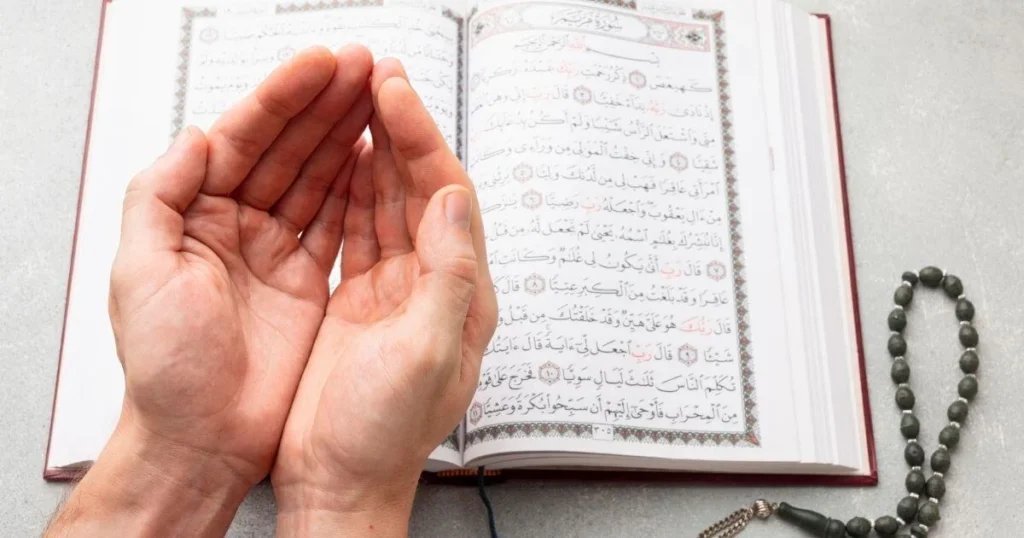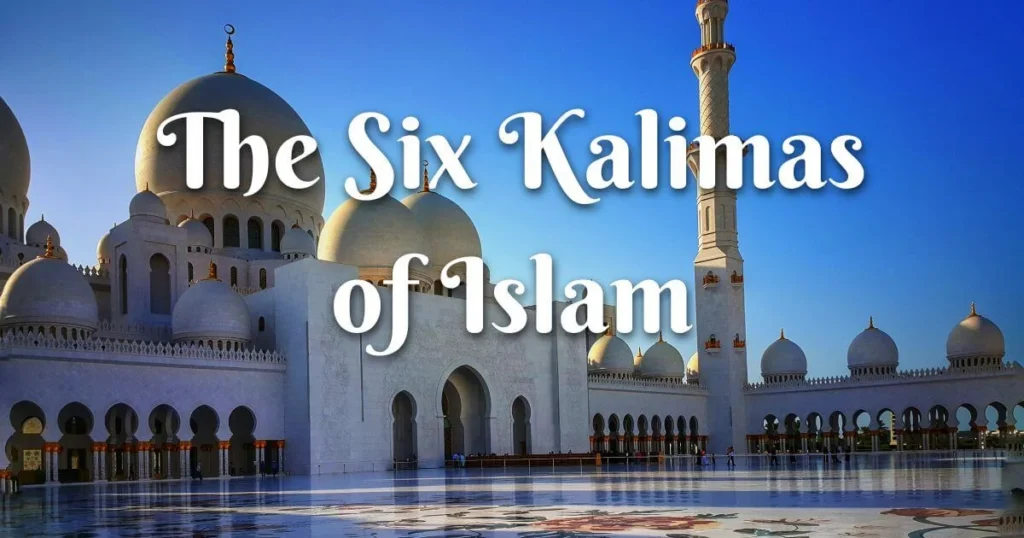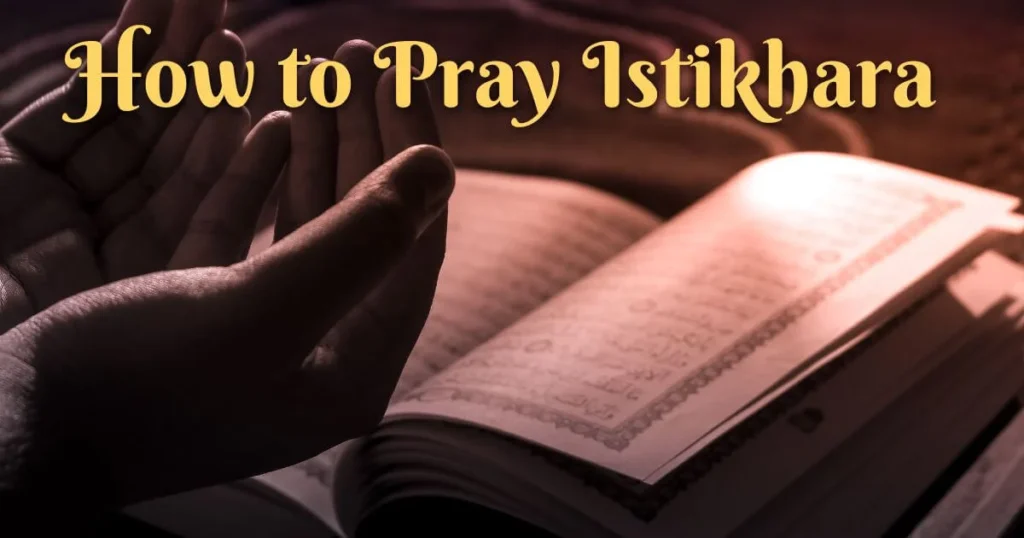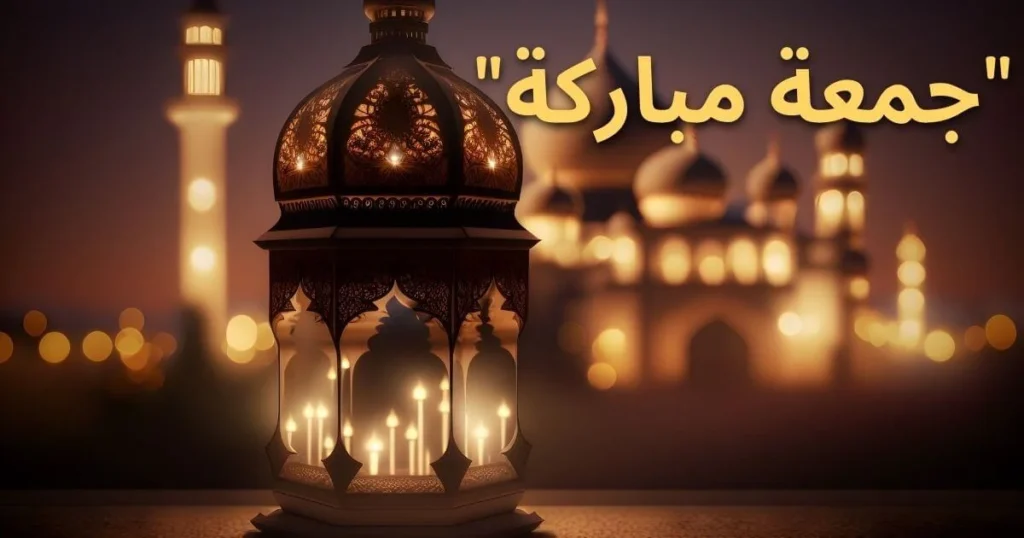Dua For Waking Up A Powerful Morning

Dua for Waking Up A Powerful Morning Ritual :
Introduction
Many of us take for granted the simple act of waking up in the morning. It marks the beginning of a brand-new day, one full of both opportunities and challenges. When the sun rises and the world wakes up, we transition from the comfort of sleep to the attentiveness of a new day. It is best to express gratitude and seek for divine favours during this time of transition. When one awakens in Islam, they utter a prayer known as a “Dua”. In this post, we will explain the significance of the Dua for awakening, its spiritual and psychological benefits, and how to include it into your daily routine.
What is the Dua for Waking Up?
In Islam, a dua is a prayer or supplication addressed to Allah (God). It is a method of requesting direction, defense, and blessings. Muslims chant a special prayer known as the Dua for waking up as soon as they awaken in the morning. It serves as a modest recognition of the gift of a new day and a prompt to begin each day in adoration of God.
The Significance of The Dua for Waking Up in the Morning
Gratitude
The Dua for awakening is a potent manifestation of appreciation. It recognizes the heavenly gift of each new day, the privilege of life, and the chance to live and achieve one’s objectives. Islam places a premium on gratitude, and this Dua serves as a gentle reminder to be grateful for each new day.
Protection
In this morning’s prayer, we ask for protection from any damage or bad that might befall us throughout the day. It is a means of pleading with God to protect us from harmful influences and direct us in the correct direction.
Consciousness of God
God’s presence in our life is reminded by the Dua for waking up. By beginning each day with prayer, we establish a mindset of spirituality and mindfulness, making sure that God is at the forefront of our thoughts and deeds.
Dua for Waking Up from Sleep
The Dua for awakening is a brief but meaningful prayer. You can either translate it into your own language or recite it in Arabic. Here is the Arabic text along with its translation into English:
Arabic
الحَمْدُ للّهِ الَّذِي أَحْيَانَا بَعْدَ مَا أَمَاتَنَا وَإِلَيْهِ النُّشُورُ
Dua for Waking Up in English
“All praise is for Allah who gave us life after having taken it from us and unto Him is the resurrection.”
Benefits of Reciting Morning Dua for Waking Up
Positive Start
Setting a pleasant tone for the day by reciting the Dua before rising from bed. It fosters a spirit of optimism and hope, which can elevate one’s disposition and frame of mind.
Gratitude Cultivation
An attitude of thankfulness that is shown in the morning may persist throughout the day. This can enhance one’s mental and emotional health.
Protection and Guidance
One can feel more safe and prepared to face the challenges of the day by praying to God for protection first thing in the morning. It provides spiritual fortitude.
Spiritual Connection
People who use the Dua for awakening report feeling more connected to their spirituality and beliefs. They are reminded of their reliance on God, and their relationship with Him is strengthened.
How to Incorporate the Dua for Waking Up Early into Your Morning Routine
Set an Intention
Make a good intention for the day to start. Consider what you want to accomplish or experience during the day before reciting the Dua. Your prayer will have more meaning if you do this.
Recite the Dua
Recite the Dua for waking up when you sit up in bed after waking up. As long as the content is obvious to you, you are free to recite it in Arabic or your native tongue.
Express Gratitude
Take a minute to express your thankfulness for the new day after reciting the Dua. Consider your blessings, your loved ones, and the opportunities that lie ahead.
Plan Your Day
Plan your day and set your task priorities during this time. This might assist you in approaching your obligations with organization and a feeling of purpose.
Set a Routine
Include this habit in your day to day activities. To reap the full advantages of this daily prayer, consistency is essential. Make it a necessary component of your morning routine.
Share with Others
Invite family members or housemates to participate in your recitation of the Dua. Your home may become more cohesive and spiritually connected as a result of this.
Dua for Sleeping
Before going to bed, you might make a number of dua (supplications) to Allah asking for protection and blessings. The “Ayat al-Kursi,” a verse from the Quran contained in Surah Al-Baqarah (2:255), is one of the most well-known and recommended duas for sleep. This passage is thought to offer protection all night long.
The Ayat al-Kursi is transliterated as follows in Arabic and English
Dua for Sleep
Arabic
اللَّهُ لَا إِلَٰهَ إِلَّا هُوَ الْحَيُّ الْقَيُّومُ ۚ لَا تَأْخُذُهُ سِنَةٌ وَلَا نَوْمٌ ۚ لَّهُ مَا فِي السَّمَاوَاتِ وَمَا فِي الْأَرْضِ ۗ مَن ذَا الَّذِي يَشْفَعُ عِندَهُ إِلَّا بِإِذْنِهِ ۚ يَعْلَمُ مَا بَيْنَ أَيْدِيهِمْ وَمَا خَلْفَهُمْ ۖ وَلَا يُحِيطُونَ بِشَيْءٍ مِّنْ عِلْمِهِ إِلَّا بِمَا شَاءَ ۚ وَسِعَ كُرْسِيُّهُ السَّمَاوَاتِ وَالْأَرْضَ ۖ وَلَا يَئُودُهُ حِفْظُهُمَا ۚ وَهُوَ الْعَلِيُّ الْعَظِيمُ
Ayat Kursi Transliteration
Allahu la ilaha illa huwa al-hayyu al-qayyumu la ta’khudhuhu sinatun wa la nawm, lahu ma fi as-samawati wa ma fi al-ard, man thalladhi yashfa’u ‘indahu illa bi idhnihi, ya’lamu ma baina aydihim wa ma khalfahum, wa la yuhituuna bi shay’in min ‘ilmihi illa bima sha’a, wasi’a kursiyyuhu as-samawati wal-ard, wa la ya’uduhu hifzuhuma, wa huwa al-‘aliyyu al-‘azhim.
Ayat Ul Kursi in English
“Allah! There is no deity except Him, the Ever-Living, the Sustainer of existence. Neither drowsiness overtakes Him nor sleep. To Him belongs whatever is in the heavens and whatever is on the earth. Who is it that can intercede with Him except by His permission? He knows what is before them and what will be after them, and they encompass not a thing of His knowledge except for what He wills. His Kursi extends over the heavens and the earth, and their preservation tires Him not. And He is the Most High, the Most Great.”
Conclusion
A lovely and significant practice, the Dua for waking up, can improve your mornings and, consequently, your entire day. It’s a straightforward yet effective method to express appreciation, ask for protection, and strengthen your relationship with your faith. You may begin each morning with a bright outlook and a strong feeling of purpose by saying this prayer every day. The Dua is your key to opening the gift of the morning with grace and thankfulness. Keep that in mind. Include it in your daily schedule and see how it gradually changes your life, one morning at a time.
FAQS:
Upon waking up, say, “Alhamdulillahil-ladhi ahyana ba’da ma amatana wa ilaihin-nushur” – “Praise be to Allah who has given us life after causing us to die, and to Him is the resurrection.”
Before going to bed, recite “Bismillah” and have a sincere desire for when you want to wake up
Recite Surah Al-Fatiha (Chapter 1) or Surah Al-Ikhlas (Chapter 112) as soon as you awaken.
Recite “La ilaha illallah” (There is no god but Allah) or make supplications for better sleep if you’re having trouble falling asleep.
Share on >>
Dua For Waking Up A Powerful Morning Read More »









